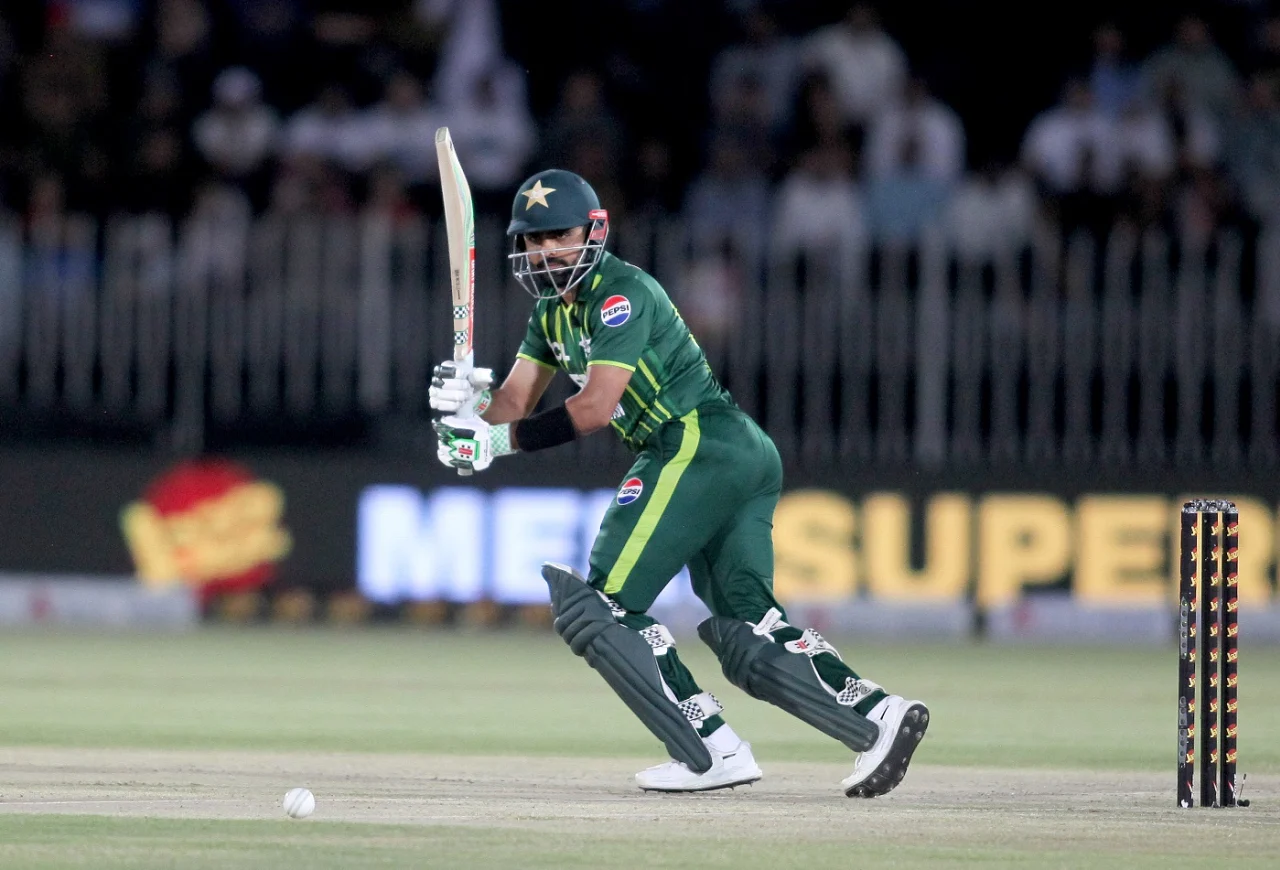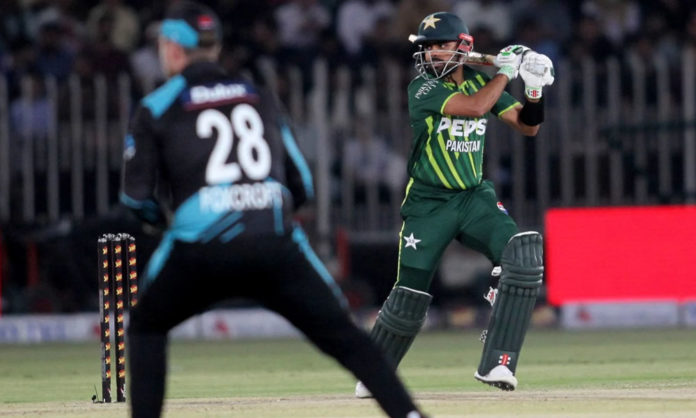Pakistan suffered a humiliating seven-wicket defeat against a depleted New Zealand side in the third T20I clash in Rawalpindi last night.
Just 24 hours after securing a commanding victory over their opponents, Pakistan found themselves on the receiving end of a comprehensive loss.
The loss raised questions about Pakistan’s approach to T20 cricket and Babar Azam’s captaincy once again.
Babar Azam and Mohammad Rizwan’s slow batting
Despite Babar Azam’s defence of Pakistan’s batting performance, questions arise regarding their batting approach. Babar argued that their score of 178 was competitive on what he deemed an excellent batting pitch.
“We did well with the bat,” Babar said at the post-match presentation. “I don’t think it [the slowdown] made much of a difference because we had caught up in the end. You can say we were ten runs short.”

However, New Zealand’s effortless chase, led by Mark Chapman’s blistering 87 off 42 balls, highlighted the inadequacies in Pakistan’s innings.
Saim Ayub got Pakistan off to a fast start with a 22-ball 32, however, he was dismissed just after the powerplay and then Pakistan’s scoring rate slowed down significantly.
The partnership between Babar Azam and Mohammad Rizwan, known for their consistency but often criticized for their slow batting, failed to accelerate the run rate.
Pakistan managed just 51 runs in the next seven overs as New Zealand applied the brakes. Collectively, Babar and Rizwan scored 59 runs in 50 balls. Babar was dismissed in the 11th over. Rizwan retired hurt with a hamstring injury in the 13th.
This is where Pakistan lost the first battle. It is not rocket science to understand that Babar Azam and Rizwan should not bat together in any phase during a T20I game until all the recognized batters have gone back to the pavilion.
Utilization of Shadab Khan
Shadab Khan’s explosive innings towards the end helped Pakistan muster a respectable total. Together with Irfan Khan, he helped Pakistan score 75 in the last seven overs to reach a respectable yet chasable total in Rawalpindi.
He scored 41 off 20 and looked like the best batter in the team, however, he came out to bat at number six, unlike his usual number four spot in PSL.

Shadab’s versatility in the batting order reflects his readiness to contribute whenever required and it’s about time that management realizes that he should be promoted up in the order.
He emphasized the importance of impactful innings in T20 cricket, a quality lacking in Pakistan’s performance on the day.
“Sometimes, you need impactful innings, especially in T20 cricket nowadays. Making runs consistently in T20 cricket isn’t difficult, but playing impactful innings is difficult,” said Shadab.
Absence of Mohammad Amir and Imad Wasim
Pace bowler Mohammad Amir and all-rounder Imad Wasim reversed their international retirement last month and declared availability for the national team. The two star players, who were vocal against Babar Azam’s captaincy, were selected to play under Azam.
Amir made it to playing XI for the first two games, while Wasim was not considered and remained on the bench in three games so far.

The first T20I was washed out but Amir made the most of his opportunity in the second match, picking up two top-order wickets. However, he was perplexingly dropped from the third game and was replaced by young Abbas Afridi.
Amir with his experience could have made the difference during Chapman’s blistering knock, where he took Shaheen Afridi and Naseem Shah to the cleaners. But God knows what Babar Azam and co were thinking.
Stay tuned to Brandsynario for the latest news and updates.









































